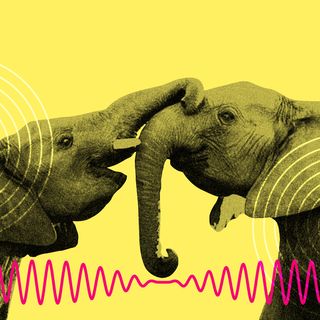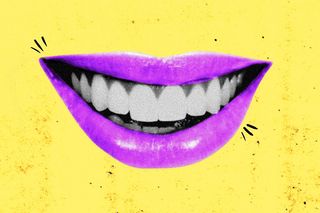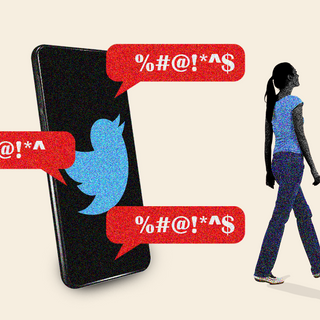
Can the Act of Smiling Really Trick Us Into Feeling Happy?
“[An] accelerated heart can make people feel anxious… furrowed brow can make them feel angry… stretch of a smile can make them feel happy.”

“If you want to feel happy, start by looking happy — smile your way into happiness,” is an adage most of us have probably heard some version of. Does it work, though? Over the years, the scientific community has flip-flopped its stance on this about a dozen times, if not more. According to Nicholas Coles, a research scientist at Stanford University, this debate has gone on “for, at least, [a] 100 years — since the dawn of psychology.”
Now, published in Nature Human Behavior, a new study — involving close to 4,000 people from nearly 20 countries — suggests that might be some truth to the “fake it till you make it approach” when it comes to smiling one’s way to happiness, kindling the debate again.
Long back, an oft-cited 1988 study had indicated that it’s indeed possible to feel happier simply by curling one’s lips into a smile. The researchers noticed that when people were asked to hold a pen between their teeth such that it forced their faces into a smile, they found Gary Larson’s The Far Side comics funnier — compared to when they were led to hold a pen between their lips to make a pouty face. The former was believed to activate one’s smile muscles, thus tricking the brain with positive signals; this was termed the “facial feedback hypothesis.” Explaining the phenomenon, Dr. Murray Grossan, an ENT-otolaryngologist in Los Angeles, had told NBC News, “When you smile, the brain sees the muscle [activity] and assumes that humor is happening.”
What’s interesting here, though, is that the participants in the 1988 experiment weren’t made aware of the objective of the experiment; they were simply told it was to help researchers devise methods allowing disabled individuals to write. This spurred Coles to note, “[S]miling could influence emotions even if the participants were not aware that they were actually smiling.”
However, in 2016, more than 15 laboratories endeavored to replicate the results of the 1988 study. They failed — casting aspersions on the conclusion of the former study. A 2018 study, however, added to the facial feedback hypothesis’ redemption arc when it replicated the results of the 1988 study; but it came with a caveat — the participants became happy as a consequence of smiling only when they weren’t being observed. Soon after, in 2019, a meta-analysis of 138 studies also succeeded, to some extent, in redeeming the 1988 study, but the debate didn’t die down.
Related on The Swaddle:
Is This Normal? “I Smile and Nod Even When I Want to Disagree”
The researchers of the present study divided the participants into three groups: one was required to replicate the pen-in-mouth method from the 1988 study; the second was told to mimic the expressions of smiling actors; the third set was directed to use their facial muscles to raise their cheeks as they curved the corners of their lips in the direction of their ears.
The first group didn’t register much success in terms of tricking their brains into feeling joy. The latter groups, however, ended up happier — albeit only to a small extent. Nonetheless, it did speak to the facial feedback hypothesis bearing some merit.
“Some people believe that emotional experience is very cognitive — tha[t] it’s solely driven by our evaluations of what’s going on in the world. This work, however, suggests that it’s also physiological,” noted Coles, who is the lead author of the present study. “Emotional experience appears to be built, in part, off of feedback or sensations from the peripheral nervous system. The accelerated heart can make people feel anxious, the furrowed brow can make them feel angry, and the stretch of a smile can make them feel happy.”
However, past research has shown that people in the service industry — wait staff, salespeople, and the like — who are forced to slap a smile on their faces as soon as they’re on the clock, report feeling more burnt out and depressed. They also tend to gravitate towards drinking heavily as soon as they’re off work.
Related on The Swaddle:
Why Laughter With Friends Might Sound Different From Laughter Around a Love Interest
This throws the facial feedback hypothesis for a toss. “[C]ertain forms of emotional labor, such as surface acting, can have serious health costs… [It] involves altering your expression to stay positive even though you are experiencing negative emotions [which can be] draining for employees,” Joseph Magliano, a professor of cognitive and instructional psychology at Northern Illinois University, had written in 2016. “Using this strategy results in more stress, emotional exhaustion, poorer physical health, and decreased job satisfaction.”
Anecdotally, Coles echoes a similar sentiment, “I know when I’m sad and people tell me to smile, it just makes me more angry… [S]miling is not going to make any important difference in your life.”
However, it’s possible that the downside is associated merely with habitually being forced to put up a smiling face day after day. Moreover, as Paula Niedenthal, a social psychologist, told NPR, “It gets complicated… Not all smiles are genuine smiles of joy.” According to Niedenthal, future research could, perhaps, delve into the subtleties of smiling to reach more definitive answers on its ability to induce happiness.
Basically, while science continues to be unsure on the subject, every once in a while, it might not be an entirely abominable idea to take a shot at smiling on a depressing day — it might not work, but it won’t hurt to try either. It’s unlikely that a smile will dispel all the darkness in one’s life, no matter how much American singer Nat King Cole repeats the lines, “Smile, though your heart is aching… You’ll find that life is still worthwhile, if you’ll just smile.”
But, maybe — just maybe — it’ll induce a fleeting moment of levity.
Devrupa Rakshit is an Associate Editor at The Swaddle. She is a lawyer by education, a poet by accident, a painter by shaukh, and autistic by birth. You can find her on Instagram @devruparakshit.
Related


As Twitter Transitions Into a New Era, Users Contemplate Migrating Away
